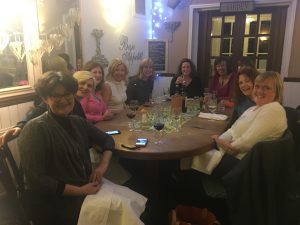Here’s something that’s quite different from when I started The Wordsmithy: the number of local small and micro-business owners I know.
Fifteen years ago, I felt like a daring (and often terrified) pioneer as I set up my limited company and tried to get to grips with commercial and fiscal basics. I worried about feeling isolated, not knowing enough and missing peer support and expertise, after a decade working in crowded corporate offices.
Since then, I’ve got to know many entrepreneurs in the Thames Valley community where I live. They are retailers, hairdressers, artists, photographers, architects, peripatetic music teachers, PRs, podiatrists, management consultants, childminders, graphic designers, plumbers… the list goes on. I’ve met them through friends, at the school gate, in the course of my work and through casual introductions. Some are in similar fields to me, in copywriting, marketing and communications.
You might think I’d feel rather rivalrous towards other local business owners competing for similar marketing projects. And it’s true that I occasionally feel a pang of envy when I congratulate someone on landing a fantastic job that I’d have loved. But it also spurs me on and reminds me that big small business successes are achievable for me too.
In fact there are excellent benefits of having a freelance peer group. Over the last decade and a half, I’ve worked as a subcontractor for some of them, put work in the way of others and had the favour returned. When I have larger projects to fulfil, some of them work for and with me. Sometimes we pass on jobs or clients that we know someone else is better equipped to handle. It’s all good news, professionally, culturally and financially.
Even more than direct work opportunities, being part of this informal group of entrepreneurs more than compensates for my lack of formal colleagues. Having such a diverse range of solo-flying professionals in my orbit means there’s always a source of information about small business admin, a different perspective on client management or some fresh context for pricing
and working practices.
A barter economy also exists – we can help each other out with our own specialisms and pass on recommendations. It’s surprising how often the opportunity comes up to put people in touch who would never have coincided otherwise. It could be to collaborate, to provide a service, or to create a business opportunity. Or it could be to offer advice or a little light mentoring to someone starting out.
The great thing for me is that it’s all achieved without formality, overheads, expenditure or obligation. We stay in touch through social media and email. I organise a self-employed Christmas dinner get-together for those who can make it – and hope they’ll bring new faces to join the party! It’s not about formal social networking, it’s about mutual support and belonging to a community that shares a common experience and an interest in learning from different approaches to self-employment.

